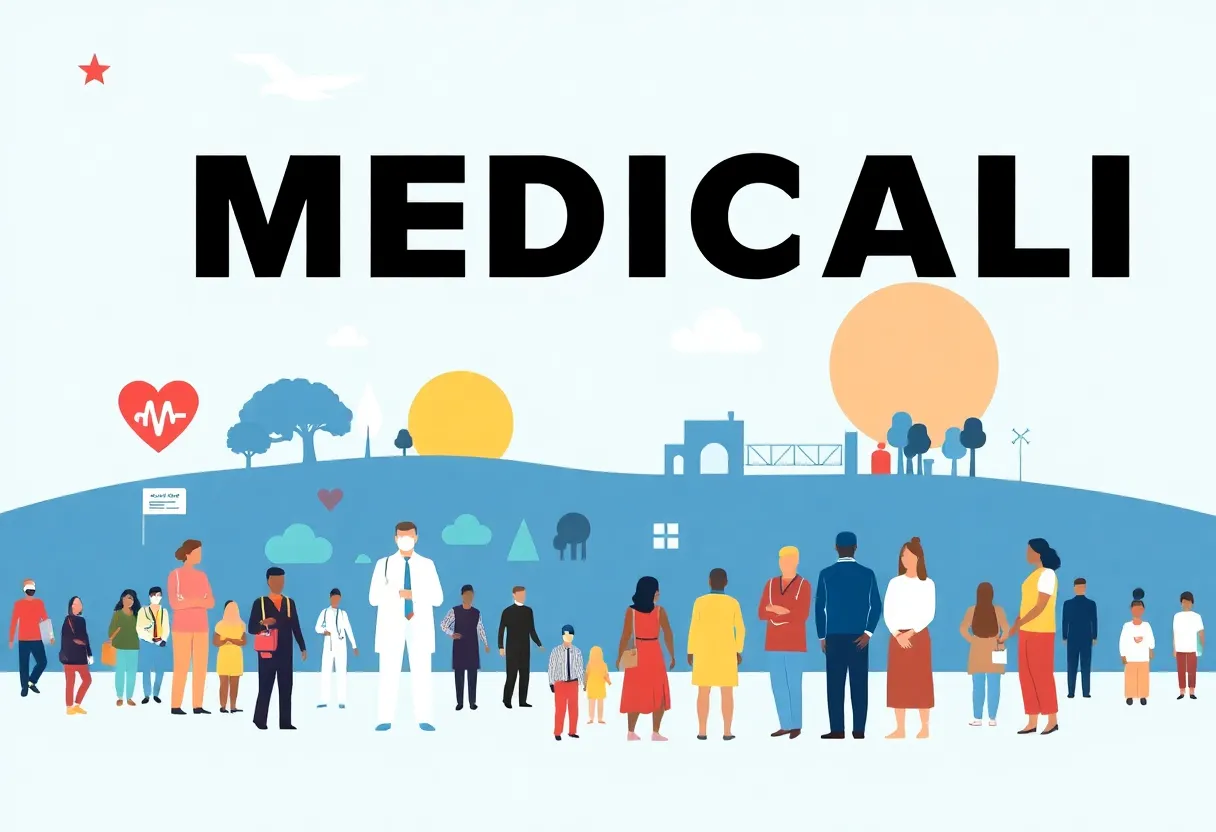News Summary
California Governor Gavin Newsom has announced a proposal to freeze enrollment for low-income undocumented immigrants in the Medi-Cal health program starting in 2026. This measure is part of efforts to address a projected $12 billion budget deficit and aims to save the state about $5.4 billion by 2029. Current enrollees will not lose coverage, but adults aged 19 and older will face a new $100 monthly premium from 2027. The proposal has elicited mixed reactions from lawmakers and community advocates, raising concerns about its impact on immigrant health care access.
California Governor Gavin Newsom has proposed an enrollment freeze for low-income immigrants without legal status in the state-funded health care program, Medi-Cal, beginning in 2026. This proposal comes in response to a projected budget deficit of $12 billion, prompting a reevaluation of state spending priorities.
Governor Newsom’s plan aims to save California approximately $5.4 billion by the fiscal year 2028-2029. As the costs associated with Medi-Cal for undocumented immigrants have significantly surpassed initial estimates, this policy shift is seen as a necessary step to address the state’s financial challenges.
Currently, the Medi-Cal program’s expenses for undocumented immigrants have ballooned to $9.5 billion annually, a considerable rise from an earlier estimate of $6.4 billion. As part of Newsom’s overall budgeting strategy, his proposal is included within a broader state budget of nearly $332 billion announced on May 14, 2025.
Impact on Current Enrollees
Importantly, existing Medi-Cal enrollees will not lose their coverage due to this freeze, and minors will remain unaffected by these changes. Starting in 2027, however, adults aged 19 and older participating in Medi-Cal with “unsatisfactory immigration status” will be required to pay a new $100 monthly premium, adding to their financial obligations.
Financial Context
California’s current fiscal challenges are further exacerbated by various factors, including substantial increases in healthcare costs and a jump in Medi-Cal enrollment. Economic uncertainties, particularly those linked to federal tariff policies from the previous administration, have also contributed to the state’s budget woes. California faced a $16 billion revenue loss tied to these federal policies implemented during the term of former President Donald Trump.
Governor Newsom has historically defended the expansion of health benefits for low-income immigrants, arguing that it would lead to long-term cost savings. However, the current budget revision outlines significant hurdles for his administration as it strives to manage healthcare policies amidst growing political speculation about his potential presidential candidacy in 2028.
Political and Community Reactions
This proposal has ignited a mixed response among lawmakers, including members of the Democratic Party, who are expected to scrutinize and potentially contest the proposed enrollment freeze. Critics argue that the changes will have detrimental effects on immigrant communities in California, a state that has long prided itself on providing robust support for these populations.
In light of the budget shortfall, Governor Newsom has faced backlash for attributing the financial crisis to external factors rather than addressing state-level spending choices. Additionally, there are concerns that further cuts from the federal government regarding Medicaid funding for states supporting undocumented immigrants could create even more strain on California’s budget.
Long-term Implications
Analysts are warning that if California does not manage its budget effectively, it risks jeopardizing its long-term fiscal stability and the ability to support its most vulnerable populations. Governor Newsom continues to emphasize California’s commitment to immigrants, asserting that no other state provides a comparable level of support.
As the state prepares for discussions among lawmakers on this contentious proposal, the impact of these budgetary decisions on immigrant health care access, community wellbeing, and the wider California economy remains a critical concern.
Deeper Dive: News & Info About This Topic
- CBS News
- NBC News
- AP News
- New York Times
- Politico
- Wikipedia: Health care in California
- Google Search: California Medi-Cal
- Google Scholar: California health policy
- Encyclopedia Britannica: Health care
- Google News: California healthcare immigrants

Author: STAFF HERE MISSION VIEJO WRITER
The MISSION VIEJO STAFF WRITER represents the experienced team at HEREMissionViejo.com, your go-to source for actionable local news and information in Mission Viejo, Orange County, and beyond. Specializing in "news you can use," we cover essential topics like product reviews for personal and business needs, local business directories, politics, real estate trends, neighborhood insights, and state news affecting the area—with deep expertise drawn from years of dedicated reporting and strong community input, including local press releases and business updates. We deliver top reporting on high-value events such as Oso Fit 5K Fun Run and Community Health Fair, Walk Against Drugs & Community Fair, and National Night Out. Our coverage extends to key organizations like the Mission Viejo Chamber of Commerce and Providence Mission Hospital Mission Viejo, plus leading businesses in retail and education that power the local economy such as The Shops at Mission Viejo, Capistrano Unified School District, and Amazon Delivery Station. As part of the broader HERE network, including HEREAnaheim.com, HEREBeverlyHills.com, HERECostaMesa.com, HERECoronado.com, HEREHollywood.com, HEREHuntingtonBeach.com, HERELongBeach.com, HERELosAngeles.com, HERESanDiego.com, and HERESantaAna.com, we provide comprehensive, credible insights into California's dynamic landscape.


